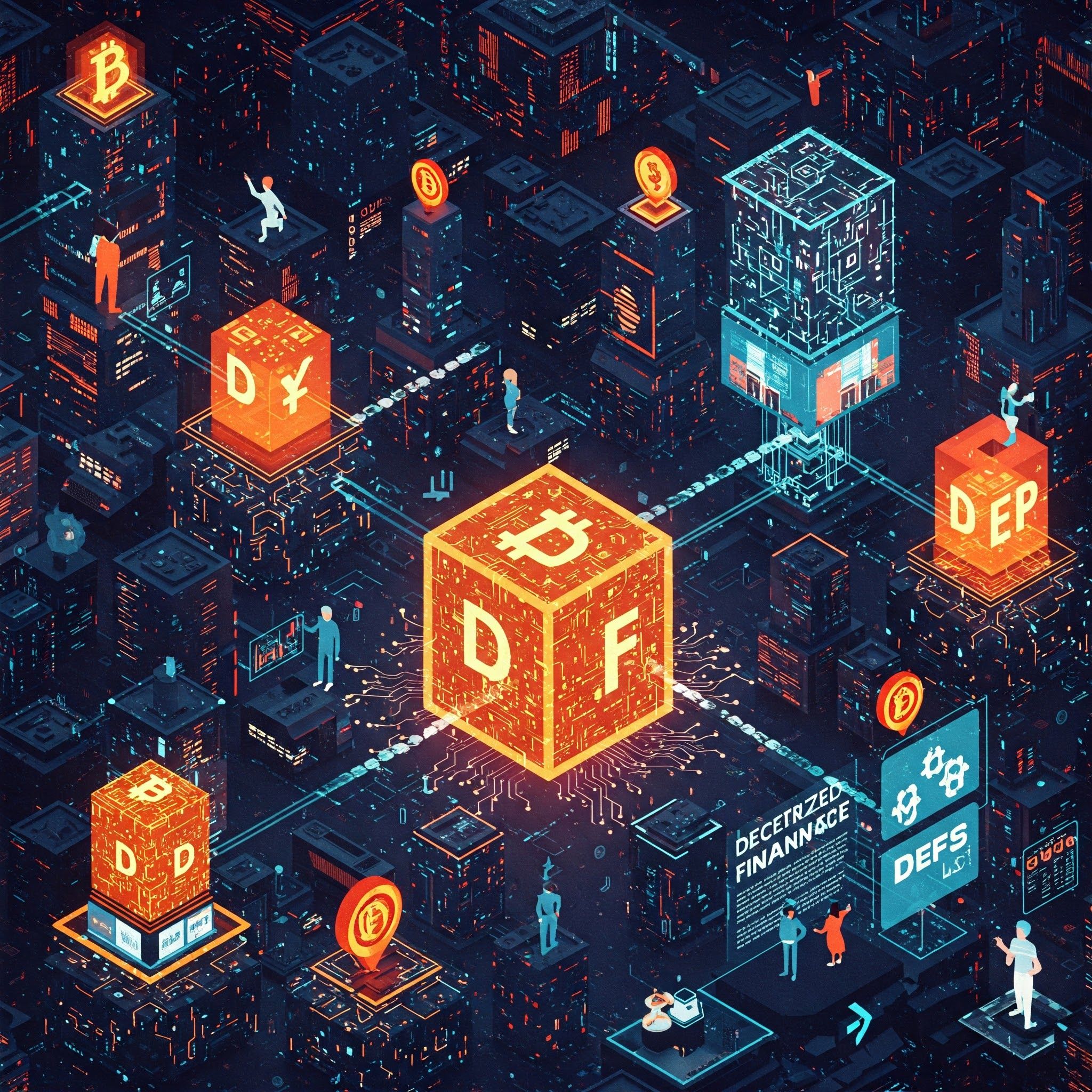DeFi in 2025: Opportunities, Risks, and the Future of Decentralized Finance

Prasad Kumkar
CEO

Decentralized Finance (DeFi) has rapidly evolved, positioning itself as a transformative force within the global financial ecosystem. As of March 2025, DeFi's Total Value Locked (TVL) has surged to over $350 billion, underscoring its growing prominence. This article delves into the multifaceted landscape of DeFi, exploring its promises, challenges, current trends, and future prospects.globenewswire.com
The Promise of DeFi
DeFi aims to democratize finance by leveraging blockchain technology to eliminate intermediaries, offering a suite of financial services that are open, transparent, and accessible to anyone with an internet connection. Key advantages include:
- Accessibility: DeFi platforms operate without traditional banking infrastructure, enabling global participation without geographical constraints.
- Transparency: All transactions are recorded on public blockchains, ensuring transparency and reducing the potential for fraud.
- Innovation: DeFi introduces novel financial instruments, such as yield farming, liquidity mining, and flash loans, providing users with diverse opportunities to optimize their assets.
The Reality Check
Despite its potential, DeFi faces several significant challenges:
- Security Vulnerabilities: The decentralized structure of DeFi platforms can make them attractive targets for hackers. Exploits in smart contracts and other vulnerabilities have led to significant financial losses. fintegrationfs.com
- Regulatory Uncertainty: The decentralized nature of DeFi complicates the application of existing financial laws, leading to a lack of consumer protections and potential misuse for illicit activities. halborn.com
- Complexity: The technical intricacies of DeFi platforms can be a barrier to entry for non-technical users, potentially leading to uninformed decision-making and financial losses.
Current Trends Shaping DeFi in 2025
Several key trends are influencing the DeFi landscape:
- Tokenization of Real-World Assets (RWAs): DeFi platforms are increasingly facilitating the tokenization of assets like real estate, art, and commodities, allowing for fractional ownership and enhanced liquidity. This trend is expected to bridge the gap between traditional finance and DeFi, attracting a broader investor base.
- Integration with Artificial Intelligence (AI): AI-powered DeFi platforms are emerging, offering automated investment strategies, risk assessment, and personalized financial services. This integration aims to enhance user experience and optimize returns.
- Cross-Chain Interoperability: Efforts to enable seamless interaction between different blockchain networks are gaining momentum, addressing the issue of fragmented liquidity and enhancing the efficiency of DeFi protocols.
- Institutional Adoption: Traditional financial institutions are exploring DeFi integrations, recognizing the potential for improved efficiency and new revenue streams. This adoption is expected to bring increased legitimacy and capital to the DeFi ecosystem.
- Enhanced Regulatory Focus: Regulators worldwide are paying closer attention to DeFi, aiming to implement frameworks that protect consumers without stifling innovation. This focus is crucial for the sustainable growth of the DeFi sector.
The Path Forward
For DeFi to realize its full potential and achieve mainstream adoption, several critical steps must be taken:
- Security Enhancements: Implementing rigorous smart contract audits and developing robust security protocols are essential to protect user funds and maintain trust in DeFi platforms.
- User Education: Providing comprehensive educational resources can empower users to make informed decisions, mitigating risks associated with the complexity of DeFi platforms.
- Regulatory Collaboration: Engaging in constructive dialogue with regulators can lead to the development of balanced frameworks that safeguard users while fostering innovation.
- Focus on Sustainability: Prioritizing sustainable yield mechanisms and avoiding unsustainable tokenomics can ensure the long-term viability of DeFi projects.
Takeaways
Decentralized Finance stands at a pivotal juncture, embodying both transformative potential and inherent challenges. By addressing security concerns, embracing regulatory developments, and focusing on sustainable growth, DeFi can redefine the financial landscape, making it more inclusive, transparent, and efficient. As we move forward, the collective efforts of developers, users, regulators, and institutions will determine the trajectory of this financial revolution.
At ChainScore Finance, we are committed to providing insights and solutions that navigate the complexities of the DeFi ecosystem, empowering our clients to harness its full potential responsibly.

About Prasad Kumkar
CEO
Prasad Kumkar, a technology leader, founded Chainscore Labs to lead the Web3 revolution. With over 6+ years of experience, he excels at building and scaling engineering projects. As the Head of Web3 at Ignite Tournaments, he grew the team, leading to significant contributions in its growth, serving millions. He has a proven history of turning innovative ideas into successful products, as demonstrated by his role at Reax Finance, Tekika, and Telosx.
